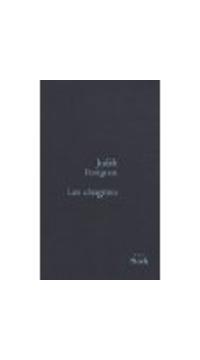
" Les chagrins "
Novel
Editions Stock
- Nominated for : The High-school Pupils Favorite Choice 2011
Long time journalist with the Liberation, now assistant to XXI and Marianne, Judith Perrignon advances slowly towards literature. There were things borrowed from History, C'etait mon frère (L'Iconoclaste, 2006), story of the six months that separated the death of Vincent Van Gogh and that of his brother Theo, of two books, Mauvais Genie with Marianne Denicourt (Stock, 2005), L'Intranquille with Gérard Garouste (L'Iconoclaste, 2009), or between journalism and theater, La Nuit du Fouquet's, with Ariane Chemin (Fayard, 2007). Les chagrins is her first novel.
"There is no trace of anything there. Tons of sand have been dumped, swings screwed, trees planted and indifference declared. But memory is plotting. Paths meander. The ground is making waves. The slide is dressed in a tower that threatens nothing. Under the sand of this square in Paris, there is dust and the secrets of a women's prison. La Petite Roquette, destroyed in 1973. Everyone preferred to forget. Except Angèle. No one had ever said she was born here, somewhere under the swings, November 16, 1967, a quarter of an hour before lights out. But her mother has just died. Helena Danec 1945-2007. A dry and silent woman. She leaves the letters received in prison, an old newspaper article recounting her trial and the name of the man she loved.
While the past just waits to emerge, to only hear of lovesickness, the beauty of a rebellious period and the power of music. It demands an explanation, it seeks and takes all voices, that of Angèle, Mila that of her grandmother, that of an old journalist who knows a more than what wrote, and even of the man who ran away. All tell the story of Helena. Her grief. Their sorrow." (Introduction by the editor)
"For her beautiful first novel, Judith Perrignon entrusts her heroine with the task of collecting all the sorrows which she is issued and everything - letters, confessions, articles, interviews, ads - which expresses them. The past was locked, it expands. Her book is liberating." (Jerome Garcin, Le Nouvel Observateur, 16 September 2010)

